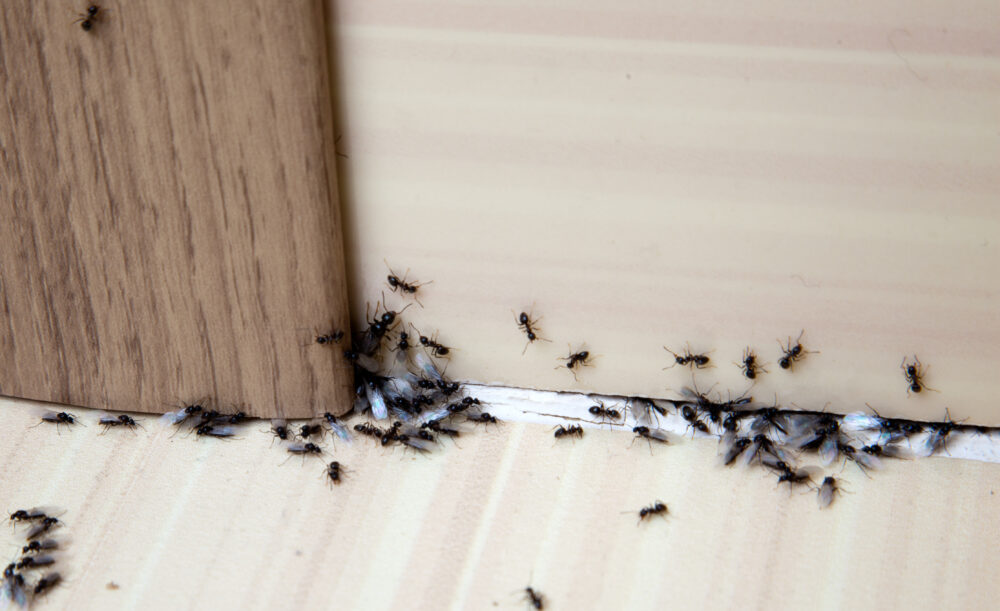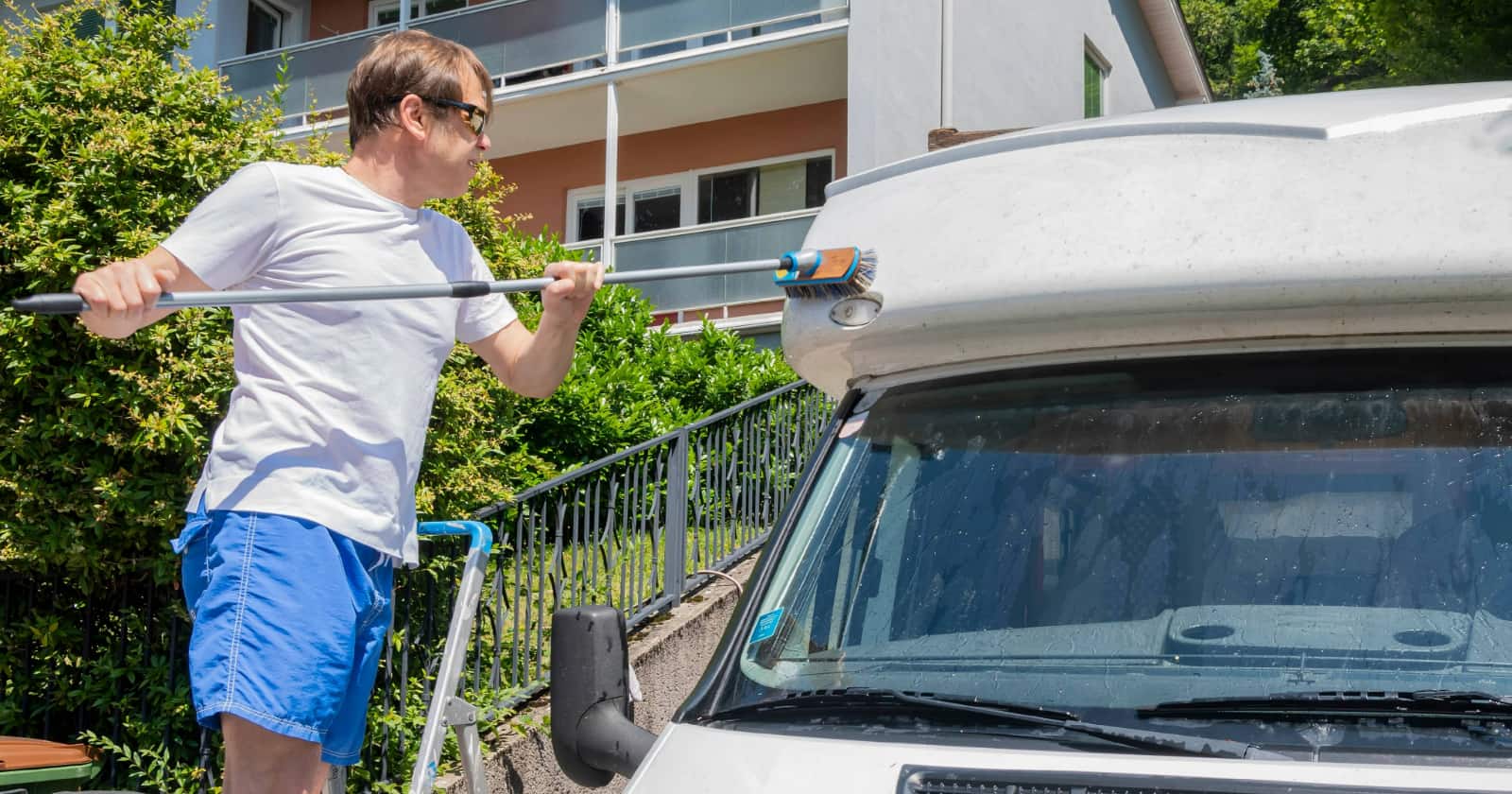
Can You Use Salt To Get Rid Of Ants In Your RV?
Ants invading your RV can ruin not only your comfort but also your camping experience. While there are commercial ant killers on the market, sometimes a simple, readily available household item is all you need—or so the old wisdom goes.
One such item that has been touted as a natural ant killer is salt. But is salt an effective ant killer in RV settings? Let’s delve into the science, methodology, and limitations to answer this question.
Understanding the ant problem
Before jumping into the solution, it’s important to recognize why ants are attracted to RVs. The tight, warm spaces in your RV provide shelter, while any crumbs or food spills offer them a food source. With these conditions met, ants will happily set up residence in your RV.
The science behind salt as an ant killer
Salt, chemically known as sodium chloride, is a mineral that’s naturally found in the earth’s crust. It’s a crucial nutrient for humans, but for ants, it’s often considered a death sentence. Sodium disrupts the internal fluid balance of ants, leading to dehydration and death. However, the extent to which salt can serve as an effective ant killer is subject to debate.
Types of salt for ant control
There are various forms of salt, but not all are suitable for ant control.
- Table salt: The most common and readily available form.
- Sea salt: Harvested from evaporated sea water and generally coarser than table salt.
- Epsom salt: Different from sodium chloride, usually used for baths and soil enrichment.
How to use salt as an ant killer
Direct application
- Identify ant trails: Locate the areas where ants are frequently seen.
- Apply salt: Sprinkle a thin line of table salt along their trails and near their entry points.
Salt water solution
- Prepare solution: Mix salt and hot water until fully dissolved.
- Spray on ants: Use a spray bottle to mist the areas where ants congregate.
Salt barriers
- Outline the RV: Apply a salt barrier around the RV to prevent ants from entering.
Does it work?
Reports are mixed. While some RV owners claim that salt effectively deters ants, scientific studies indicate that salt is not the most effective method for killing ants. It may act as a deterrent, but it’s unlikely to eliminate an entire colony.
Pros and cons
Pros
- Economical: Salt is cheap and readily available.
- Non-toxic: Safe around kids.
- Convenience: No need for specialized equipment.
Cons
- Ineffectiveness: May not kill the entire ant colony.
- Temporary: Acts as a deterrent rather than a permanent solution.
- Corrosive: Salt can be corrosive to metal parts of the RV.
Expert opinions
Most entomologists and pest control experts do not recommend salt as a primary method for ant control. More effective alternatives like baits and pesticides specifically designed for ant control are usually suggested.
What About Other Natural ant killers?
There are other natural ant killers like diatomaceous earth, vinegar, and citrus that can be more effective than salt.
Diatomaceous Earth
How it works
Diatomaceous earth (DE) is a soft, crumbly, porous sedimentary deposit formed from the fossil remains of diatoms, a type of hard-shelled algae. DE works by absorbing the waxy outer layer of the ant’s exoskeleton, effectively dehydrating and killing them.
Application
Sprinkle food-grade diatomaceous earth around the areas where ants are frequently seen. Since it’s a fine powder, you can use a hand duster for better application. Ensure that the DE comes into direct contact with the ants for maximum effectiveness.
Pros and cons
- Pros: Non-toxic, safe for pets and children, and highly effective.
- Cons: May require reapplication after rain or if it becomes wet.
Vinegar
How it works
The high acidity of vinegar disrupts the ant’s sense of smell and can destroy the chemical trail they leave behind for other ants to follow. It can also serve as a contact killer.
Application
Mix equal parts of water and white vinegar in a spray bottle. Spray the mixture directly onto ants and their trails. Reapply as needed.
Pros and cons
- Pros: Cheap, readily available, and multi-purpose.
- Cons: Strong smell that may be off-putting, requires frequent application.
Citrus
How it works
The limonene present in citrus fruits like lemons and oranges acts as a natural insecticide. It can break down the waxy coatings on an ant’s respiratory system, suffocating them.
Application
You can either use citrus peels or citrus essential oils diluted in water. For citrus peels, place them near ant entry points or make a citrus peel infusion by boiling the peels in water and using the liquid as a spray.
Pros and cons
- Pros: Pleasant smell, safe, and doubles as a cleaner.
- Cons: May require frequent reapplication, not as effective on larger ant colonies.
Comparing Effectiveness
While each of these alternatives has its own set of pros and cons, they generally tend to be more effective than salt in both killing ants and disrupting their activity.
- Diatomaceous Earth: Highly effective as a contact killer and can eliminate a colony when applied correctly.
- Vinegar: Effective as a contact killer and disruptor of ant trails but requires frequent application.
- Citrus: Acts as both a deterrent and contact killer, albeit less effective on larger colonies.
Final thoughts
While using salt is generally safe, it’s essential to remember that it can be corrosive. Always rinse off any areas where salt water has been sprayed to prevent corrosion, especially on metal surfaces.
While salt may act as a deterrent for ants in your RV, it’s not the most effective or permanent solution for ant control. It could serve as a temporary measure or supplement other methods, but for long-term ant control, it may be more practical to consult professionals or use specialized ant control products.
Salt can indeed offer a quick, cost-effective, and non-toxic solution to a sudden ant problem in your RV, but relying solely on salt for persistent issues is not advisable. Remember that ants are not just a nuisance; they can also contaminate food and, in some cases, cause structural damage to your RV. Therefore, for a comprehensive ant control strategy, it’s best to combine multiple methods and consult experts as necessary.
Track your RV maintenance
Make sure you keep track of all your RV maintenance and repairs with an online tool such as RV LIFE Maintenance. Not only can you keep all of your documents in one place, but you’ll also receive timely reminders when maintenance is due to help you avoid costly repairs and potentially serious accidents.




Mix boric acid with equal parts of sugar (I used powdered sugar) well mixed and placed near where they congregrate. They carry it back to the nest and eventually kkill the colony
Surprised you didn’t mention Boric Acid. It sounds scary, but it’s not. It is probably safer and more effective than anything you mentioned here. In fact, it’s also used in eye washes and treating yeast infections (ask your mom.)